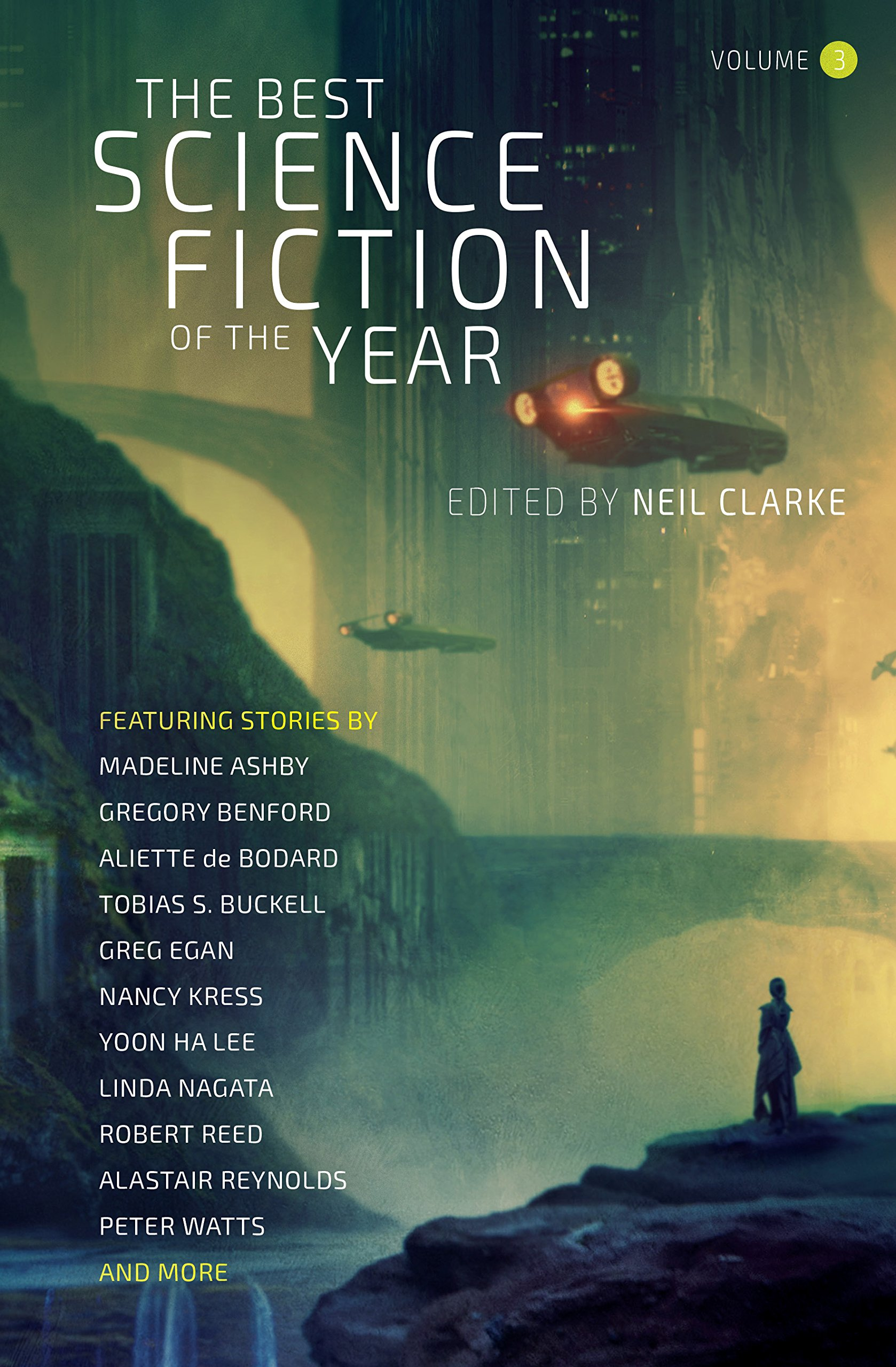Science fiction books have captivated readers for generations, offering fresh perspectives on technology, society, and the human condition. Often, these imaginative narratives delve deep into concepts like AI in literature, exploring both the potential and the peril of artificial intelligence. From dystopian futures to adventures in space, the best science fiction stories challenge us to rethink our assumptions about humanity, often acting as a mirror reflecting contemporary issues like censorship in books. The genre not only entertains but provokes critical thought, making it essential in today’s rapidly evolving world. As we explore the realm of sci-fi literature, we uncover not only the whimsical but also the profound implications of our technological advancements.
Speculative fiction has long intrigued audiences through its imaginative tales that stretch the boundaries of reality. Often referred to as futuristic narratives, these stories examine the complexities of human existence amidst technological evolution. A significant theme in this realm is the representation of artificial intelligence and its implications for society, offering critical insights into our own behaviors and ethics. Moreover, the genre frequently addresses the pressing issue of information control and censorship in books, serving as a cautionary tale about maintaining intellectual freedom. By probing the intricacies of what it means to be human in a technologically dominated era, speculative fiction invites readers to reflect on their roles in shaping the future.
Exploring Humanity Through Sci-Fi Literature
Science fiction literature often dives deep into the complexities of humanity, exploring what it means to be human in a rapidly changing world. Books like “A Rover’s Story” by Jasmine Warga not only entertain but also provoke thought, encouraging readers to reflect on emotional connections and the essence of being human amidst advancing technology. When machines like the Mars rover Res develop forms of communication that parody human interaction, readers are compelled to ponder the barriers and bridges that exist between human feelings and artificial constructs.
Moreover, stories such as “Solaris” by Stanislaw Lem further illustrate the theme of humanity’s encounters with the unknown. Here, the characters grapple with the limits of their understanding and the profound impacts of confronting alien intelligence. Through these narratives, sci-fi literature serves as a mirror to our own societal challenges, urging us to examine our perceptions of consciousness, empathy, and existential significance in a universe filled with enigmas.
AI in Literature: A Double-Edged Sword
The integration of artificial intelligence in contemporary science fiction highlights the dual nature of this technology. While it represents unparalleled advancements and human ingenuity, it also evokes a spectrum of ethical dilemmas and fears. In “Blindsight” by Peter Watts, the stark contrast between human consciousness and the capabilities of an alien species forces readers to question the very foundation of intelligence. The protagonist’s unsettling experiences with a seemingly superior form of intelligence prompt readers to critically engage with the implications of creating AI that operates beyond human limitations.
Additionally, AI’s portrayal in literature often reflects societal anxieties about control and autonomy. Works such as Ray Bradbury’s “Fahrenheit 451” underscore the risk of allowing technology to dictate our narratives and beliefs. As Saviano points out, today’s algorithm-driven content can narrow our perspectives, mirroring the oppressive environments depicted in classic sci-fi. By examining these themes, literature not only warns against the potential pitfalls of AI but also encourages critical engagement with how these technologies shape our lives and society.
Censorship and its Reflection in Science Fiction
Censorship remains a pervasive issue, and science fiction frequently serves as a platform to critique and explore its implications. Novels like Han Song’s “Exorcism” vividly illustrate the consequences of governmental control over creative expression. The protagonist’s struggle aboard a hospital ship governed by glitching AI reflects the broader tensions between individual narratives and authoritative power. In a world where creativity is stifled, Song’s work becomes a powerful commentary on the necessity of challenging the status quo to preserve cultural diversity.
Similarly, classics like “Fahrenheit 451” expose the insidious nature of censorship, as Bradbury illustrates a society where literature is marginalized in favor of superficial distractions. This theme resonates strongly in the modern context, where the dissemination of information is increasingly mediated by technology. As Saviano emphasizes, the battle for intellectual freedom demands vigilance against systems that prioritize entertainment over genuine discourse. Sci-fi literature thus plays a crucial role in advocating for the freedom of thought and expression in the face of rising censorship.
Best Science Fiction Books to Challenge Your Perspectives
Selecting the best science fiction books requires a keen eye for narratives that challenge our perceptions and provoke deep thought. For many readers, Peter Watts’ “Blindsight” comes highly recommended for its exploration of consciousness and what it truly means to be aware. As readers accompany the crew on their encounter with alien intelligence, they are drawn into questions about evolution, human exceptionalism, and the very fabric of reality, making it a pivotal read for any science fiction enthusiast.
Likewise, Stanislaw Lem’s “Solaris” offers an introspective look at human emotions and the enigmatic nature of intelligence, solidifying its place in the canon of must-read science fiction. Through its haunting exploration of grief and the unknown, “Solaris” encourages readers to reflect on their own understanding of life and connection. Such recommendations serve not only as entertaining escapism but also as valuable invitations to explore our collective consciousness and the realities of our existence.
The Role of Emotional Connection in Sci-Fi Narratives
Emotional connection is a recurring theme in sci-fi narratives, one that invites readers to empathize with characters often rooted in artificial or alien experiences. “A Rover’s Story” poignantly illustrates this as the young protagonist and his mother form an emotional bond with a Mars rover, representing the potential for friendship between humans and machines. Such narratives compel readers to consider how emotional experiences transcend physical form, ultimately challenging our definitions of companionship and relationships in an age increasingly defined by technology.
Moreover, in works such as “Exorcism,” relationships between characters and AI are fraught with complexity, tapping into themes of mourning, memory, and existence. The interplay between personal connections and the mechanistic world around them invites deep reflection on our humanity and the emotional landscapes we navigate. Sci-fi literature, therefore, not only serves as a speculative critique of our future but also as a profound exploration of the emotional core that defines what it means to be human.
How Science Fiction Challenges Societal Norms
Science fiction has a unique power to challenge societal norms and question accepted realities. By creating alternate worlds, authors can dissect aspects of contemporary society, allowing readers to see familiar issues in a new light. For instance, both “Fahrenheit 451” and “Exorcism” delve into the consequences of societal complacency and censorship, pushing readers to confront the dangers of passive consumption. In doing so, these works serve as timely reminders that vigilance and active engagement with our culture are paramount.
Additionally, stories like “Blindsight” and “A Rover’s Story” seek to push the boundaries of the human experience, urging readers to reconsider their perceptions of consciousness and emotion. By grappling with profound themes—such as the nature of intelligence and the loss of human connection—these novels foster critical conversations around technology’s role in shaping societal values. Ultimately, the challenge posed by science fiction is not merely to envision fantastical futures, but to reflect on the present and inspire a more thoughtful approach to the ethical dilemmas we face.
Ethical Dilemmas Presented in Sci-Fi Fiction
The ethical dilemmas embedded within science fiction books often mirror real-world concerns surrounding technology and its implications for humanity. In “Blindsight,” the exploration of AI and consciousness not only serves as an exciting narrative but also raises crucial questions about the moral responsibilities of creating sentient beings. Characters are faced with decisions that force them to confront the unintended consequences of their technological advancements, highlighting the importance of ethical frameworks in scientific endeavors.
Similarly, in “Fahrenheit 451,” the systematic erasure of knowledge symbolizes the ethical failure of society to guard against ignorance. Bradbury’s cautionary tale warns us against the seduction of distractions that undermine critical thinking. This theme resonates in today’s digital environment, where the rapid consumption of information can lead to intellectual complacency. Such ethical explorations within sci-fi literature are essential, as they compel readers to engage with the moral complexities of our evolving relationship with technology and ensure that humanity remains at the forefront of our decisions.
The Influence of AI on Narrative Structures
AI’s presence in science fiction extends beyond thematic exploration; it significantly impacts narrative structure and storytelling devices. Works such as “A Rover’s Story” incorporate AI into their plots, allowing the technology to influence character development and plot progression uniquely. By framing the narrative through the perspectives of sentient machines, authors create fresh storytelling techniques that challenge conventional narrative forms and invite readers to experience the story from an unconventional angle.
Moreover, the complexity of characters in sci-fi literature highlighted in “Solaris” showcases how AI can be woven into plots to create intricate emotional landscapes. The disconnect between human emotions and machine logic enriches the storytelling, allowing for profound character arcs that reflect the struggles of understanding and connection. In this way, AI not only serves as a tool for narrative exploration but also as a catalyst for innovation in literary forms, enhancing both emotional depth and intellectual engagement in sci-fi literature.
Future Trends in Science Fiction Literature
As science fiction continues to evolve, future trends are likely to reflect the rapid advancements in technology and societal changes. With a growing focus on AI in literature, emerging authors will increasingly explore the implications of artificial intelligence on everyday life, relationships, and ethics. This exploration could lead to more diverse narratives that dive into underrepresented perspectives, enriching the genre and allowing it to resonate with a broader audience.
Furthermore, themes of censorship and control, as seen in works like “Fahrenheit 451,” will likely become more prevalent, paralleling the ongoing societal debates about information freedom and the role of technology in shaping narratives. As readers demand more from their literature, the fusion of traditional storytelling with innovative concepts will help shape a new wave of science fiction that challenges norms, sparks conversations, and ultimately enriches our understanding of the world around us.
Frequently Asked Questions
What are some of the best science fiction books focusing on AI in literature?
Among the best science fiction books that explore AI in literature, Peter Watts’ ‘Blindsight’ stands out. It presents a gripping narrative about augmented humans encountering an alien intelligence that operates without self-awareness. This thought-provoking story raises questions about the nature of consciousness and the implications of creating AI that may not resemble human intelligence.
How does censorship in books affect science fiction literature?
Censorship in books, particularly in science fiction literature, can significantly impact the themes and narratives of the genre. Works like Han Song’s ‘Exorcism’ offer insight into how censorship shapes storytelling, illustrating the struggle to convey complex ideas about reality and human experience in a world where expression is stifled. This highlights the power dynamics between creativity and control, making such narratives crucial in discussions on censorship.
What themes on humanity are prevalent in best science fiction books?
Best science fiction books often delve into themes of humanity, exploring what it means to be human in the face of advanced technology. For instance, ‘A Rover’s Story’ by Jasmine Warga prompts reflection on emotional connections between humans and AI, emphasizing the importance of unique human traits amidst technological evolution. These themes challenge readers to consider their identity and values in a rapidly changing world.
Why should I read science fiction books that address censorship and information control?
Reading science fiction books that address censorship, such as Ray Bradbury’s ‘Fahrenheit 451,’ is vital in understanding the consequences of information control in society. These narratives serve as cautionary tales, warning against the dangers of losing intellectual freedom and critical thinking to distractions and superficial engagement. They prompt essential conversations about the role of technology and media in shaping public discourse.
Which science fiction books best illustrate the intersection of AI and human emotion?
Books like ‘A Rover’s Story’ by Jasmine Warga and ‘Blindsight’ by Peter Watts illustrate the intersection of AI and human emotion. Warga’s novel presents a touching relationship between a Mars rover and its creators, while Watts’ work challenges the perception of consciousness and emotional intelligence in AI. These stories offer valuable insights into how AI interacts with human experiences and emotions, enriching the sci-fi genre.
How do science fiction literature recommendations help us understand contemporary issues?
Recommendations of science fiction literature, such as those from Harvard faculty, help readers engage with contemporary issues like AI ethics, censorship, and the evolving nature of humanity. Works like ‘Solaris’ explore limits of understanding, while ‘Fahrenheit 451’ addresses the threats of censorship and misinformation. This genre serves as a mirror to our society, urging us to question the future implications of current technological and societal trends.
| Title | Author | Key Themes |
|---|---|---|
| Blindsight | Peter Watts | Exploration of AI’s consciousness and intelligence. |
| Solaris | Stanislaw Lem | Limits of understanding; human humility in the face of the unknown. |
| A Rover’s Story | Jasmine Warga | Explores human emotions through AI connections, identity, and friendship. |
| Exorcism | Han Song | Censorship and the nature of reality in a dystopian setting. |
| Fahrenheit 451 | Ray Bradbury | Censorship and the importance of intellectual freedom. |
Summary
Science fiction books offer an insightful lens into the complexities of modern life, exploring themes such as artificial intelligence, censorship, and the essence of humanity. As recommended by Harvard faculty and staff, these books not only predict technological advances but also serve as critical commentaries on societal issues. In a world increasingly interwoven with technology, engaging with science fiction can spark important conversations about the future, highlighting the delicate balance between innovation and ethical considerations.



